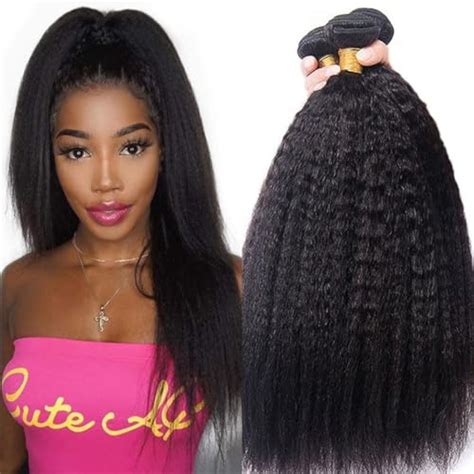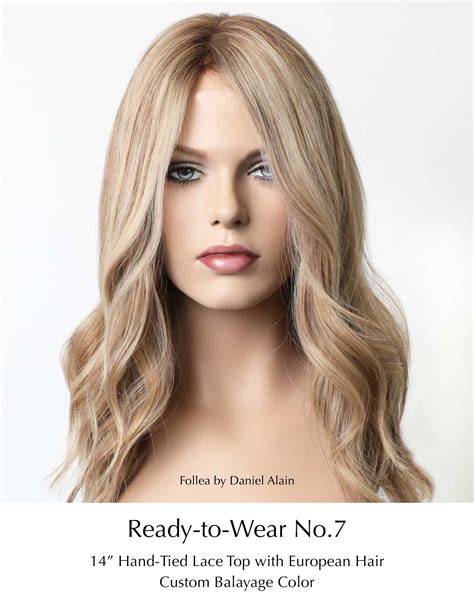Introduction
Ready-to-wear wigs have revolutionized the world of hair fashion, offering a convenient and versatile way to instantly transform your look. Whether you’re seeking a dramatic style makeover, experimenting with different colors, or concealing hair loss, these wigs provide an effortless solution to meet your needs.

Types of Ready-to-Wear Wigs
The market offers a wide range of ready-to-wear wigs in various styles, materials, and constructions. Some popular types include:
- Synthetic wigs: Made from synthetic fibers, these wigs are affordable and easy to maintain. They come in a spectrum of colors and textures but may not offer the same natural look as human hair wigs.
- Human hair wigs: Crafted from real human hair, these wigs provide a more natural appearance and feel. They are more expensive than synthetic wigs but offer greater versatility and customization.
- Lace front wigs: These wigs feature a lace-based front that creates the illusion of a natural hairline. They are ideal for achieving a seamless, undetectable look.
Benefits of Ready-to-Wear Wigs
- Convenience: Ready-to-wear wigs eliminate the need for lengthy salon visits and complex installation processes. They can be worn straight out of the box, providing instant gratification.
- Versatility: Wigs offer endless possibilities to experiment with different styles, from long flowing locks to chic bobs and vibrant colors. They allow you to change your hair without damaging your natural hair.
- Protection: Wigs can protect your natural hair from heat styling tools, chemical treatments, and environmental stressors like UV rays.
- Confidence: A well-fitting wig can boost your self-esteem by enhancing your appearance and creating a more confident demeanor.
How to Choose the Right Ready-to-Wear Wig
Selecting the perfect ready-to-wear wig requires careful consideration of several factors:
- Style: Determine the hairstyle that best complements your face shape and personal preferences.
- Material: Decide between synthetic or human hair based on your budget, desired look, and maintenance requirements.
- Construction: Choose a cap construction (lace front, full lace, capless) that provides the comfort and natural appearance you seek.
- Color: Select a color that matches or complements your natural hair color or opt for a contrasting hue for a dramatic statement.
- Fit: Measure your head circumference to ensure a snug and secure fit for maximum comfort and a natural look.
Installation and Maintenance of Ready-to-Wear Wigs
Installation:
- Prepare your natural hair by washing and detangling it.
- Wear a wig cap to secure your natural hair underneath.
- Position the wig over your head and adjust the straps for a snug fit.
- Secure the front of the wig using wig tape or glue (optional).
Maintenance:
- Brush or comb your wig gently to prevent tangles.
- Wash the wig regularly using cold water and a wig shampoo.
- Condition the wig after washing to restore moisture.
- Air-dry the wig or use a low heat setting on a hairdryer.
- Store the wig properly on a wig stand or in a wig box.
Pain Points Associated with Ready-to-Wear Wigs
Despite their many benefits, ready-to-wear wigs may pose certain challenges:
- Cost: Some high-quality wigs, especially human hair wigs, can be expensive.
- Maintenance: Wigs require regular care to maintain their appearance and prevent damage.
- Heat intolerance: Synthetic wigs may melt or sustain heat damage under excessive heat.
- Unnatural look: Some low-quality wigs may not provide a natural-looking appearance.
Motivations for Using Ready-to-Wear Wigs
- Hair loss: Wigs offer a discreet and fashionable solution to conceal hair loss due to medical conditions, aging, or alopecia.
- Style experimentation: Wigs allow individuals to experiment with different hairstyles without altering their natural hair.
- Fashion statement: Wigs are a popular fashion accessory for those seeking a bold and expressive look.
- Cultural significance: Wigs play a significant role in certain cultures and religious practices.
Step-by-Step Approach to Wearing a Ready-to-Wear Wig
- Choose the right wig: Consider the factors discussed above to select the wig that best suits your needs and preferences.
- Prepare your hair: Wash, detangle, and secure your natural hair using a wig cap.
- Position the wig: Place the wig on your head and adjust the straps for a comfortable fit.
- Secure the wig: Use wig tape or glue to secure the front of the wig for additional stability (optional).
- Style the wig: Brush or comb the wig to remove any tangles and create a natural look.
- Maintain the wig: Follow the maintenance recommendations provided in this guide to extend the lifespan of your wig and keep it looking its best.
Pros and Cons of Ready-to-Wear Wigs
| Pros | Cons |
|---|---|
| Convenience | Cost |
| Versatility | Maintenance |
| Protection | Heat intolerance |
| Confidence boost | Unnatural look (low-quality wigs) |
Innovative Applications of Ready-to-Wear Wigs
Beyond their traditional uses, ready-to-wear wigs have found innovative applications in various fields:
- Cosplay: Wigs are essential for cosplay enthusiasts to portray iconic characters from movies, anime, and video games.
- Medical applications: Wigs are used to disguise hair loss experienced by cancer patients undergoing treatment.
- Drag performance: Wigs are a key element in drag performances, allowing performers to create exaggerated and theatrical looks.
Statistics on the Ready-to-Wear Wig Market
The global ready-to-wear wig market is experiencing rapid growth, valued at approximately USD 12.5 billion in 2022. Market researchers predict that it will reach USD 25 billion by 2027, indicating its increasing popularity and demand.
- A survey by the American Cancer Society found that over 60% of cancer patients use wigs to manage hair loss during treatment.
- The International Draq Association estimates that the annual spending on wigs by drag performers exceeds USD 1 billion worldwide.
Conclusion
Ready-to-wear wigs have revolutionized the world of hair fashion by providing a convenient, versatile, and confidence-boosting solution to elevate one’s style. Whether you’re seeking to conceal hair loss, experiment with different hairstyles, or make a bold fashion statement, a ready-to-wear wig can empower you to achieve your desired look effortlessly. By carefully selecting the right wig and following proper maintenance techniques, you can enjoy the benefits of these wigs for years to come.
Tables
Table 1: Types of Ready-to-Wear Wigs
| Type | Material | Benefits | Drawbacks |
|---|---|---|---|
| Synthetic | Synthetic fibers | Affordable, easy maintenance | Less natural appearance |
| Human hair | Real human hair | Natural look and feel, versatile | More expensive |
| Lace front | Lace-based front | Seamless hairline, natural look | Requires professional installation |
Table 2: Pain Points Associated with Ready-to-Wear Wigs
| Pain Point | Solution |
|---|---|
| Cost | Consider budget-friendly synthetic wigs or explore payment plans. |
| Maintenance | Follow proper care instructions, invest in a wig stand or box for storage. |
| Heat intolerance (synthetic wigs) | Avoid excessive heat styling, use a low heat setting on hairdryer. |
| Unnatural look | Choose high-quality wigs with a natural-looking texture and color. |
Table 3: Motivations for Using Ready-to-Wear Wigs
| Motivation | Example |
|---|---|
| Hair loss | Concealing hair loss due to medical conditions, aging, or alopecia. |
| Style experimentation | Trying out different hairstyles without altering natural hair. |
| Fashion statement | Creating a bold and expressive look. |
| Cultural significance | Participating in cultural practices or religious ceremonies. |
Table 4: Innovative Applications of Ready-to-Wear Wigs
| Application | Industry |
|---|---|
| Cosplay | Entertainment |
| Medical applications | Health care |
| Drag performance | Performing arts |
